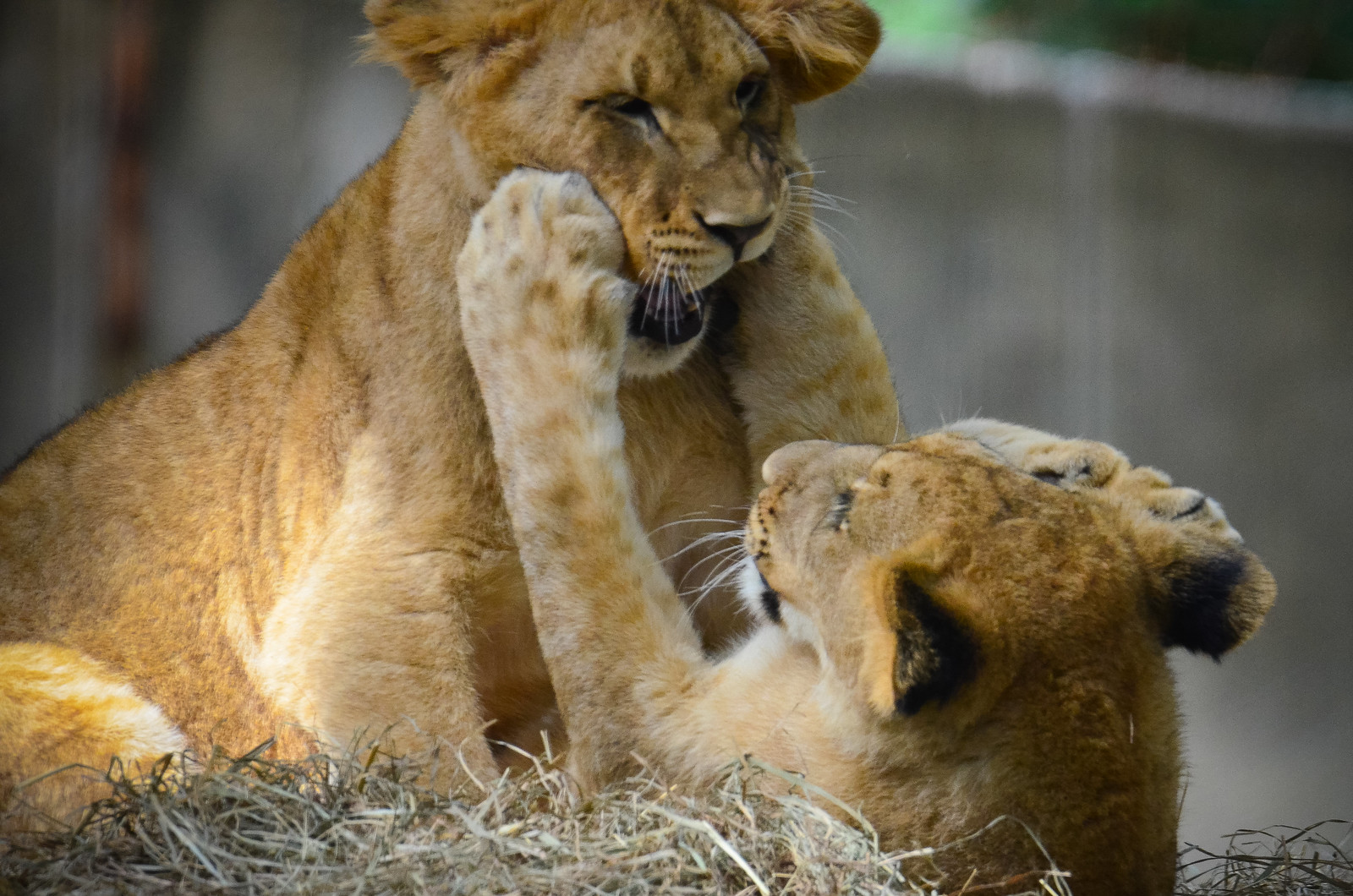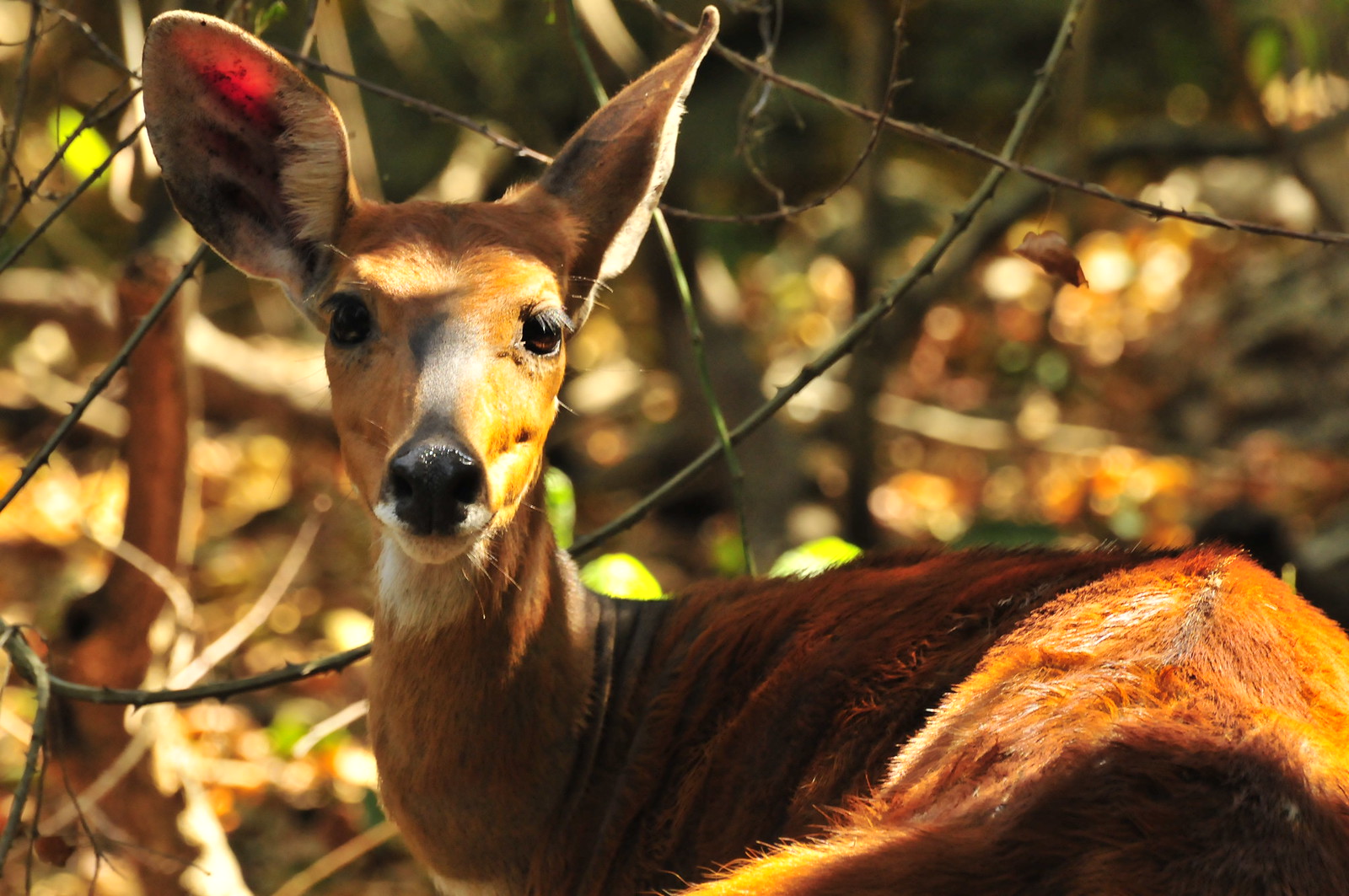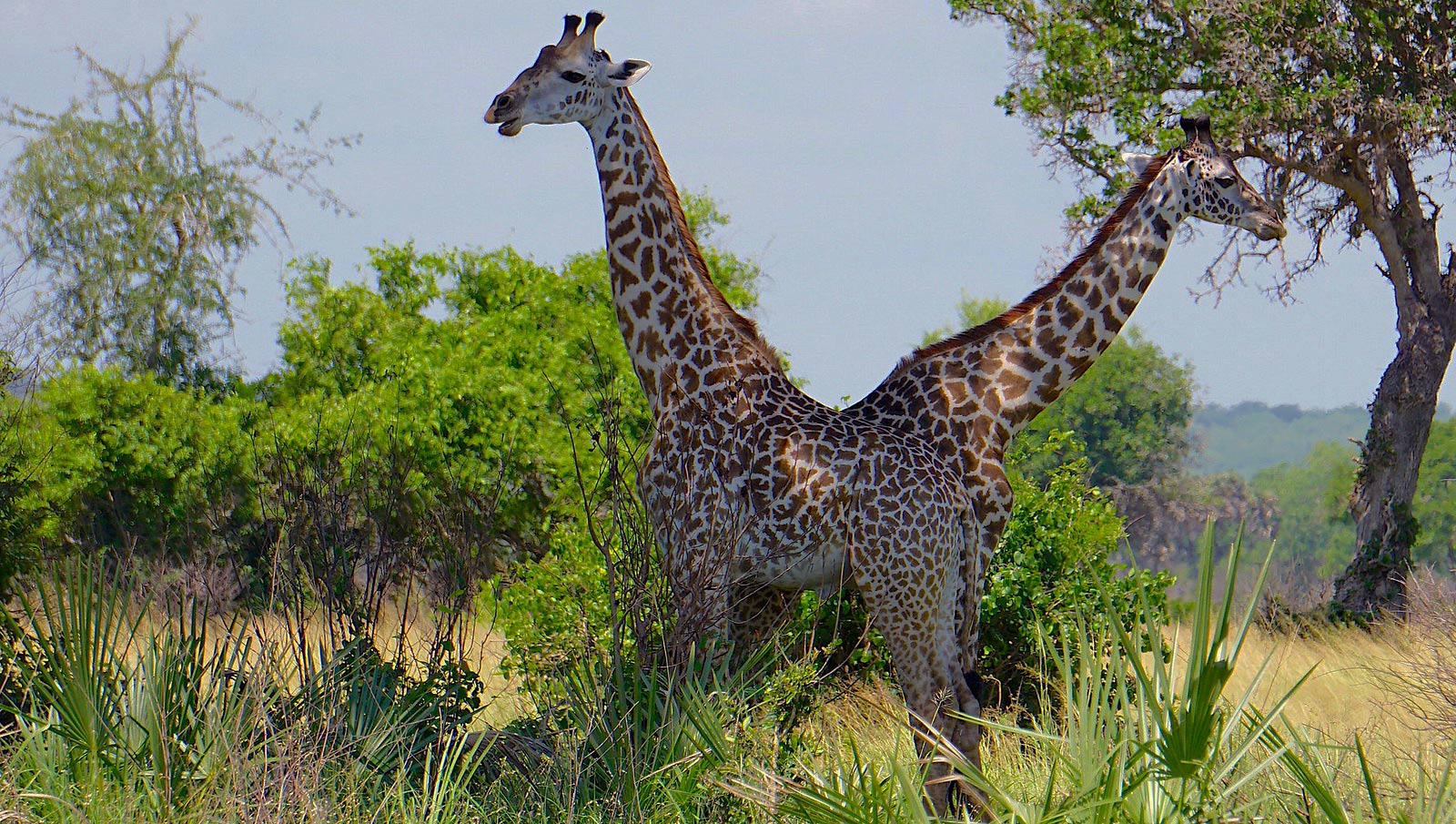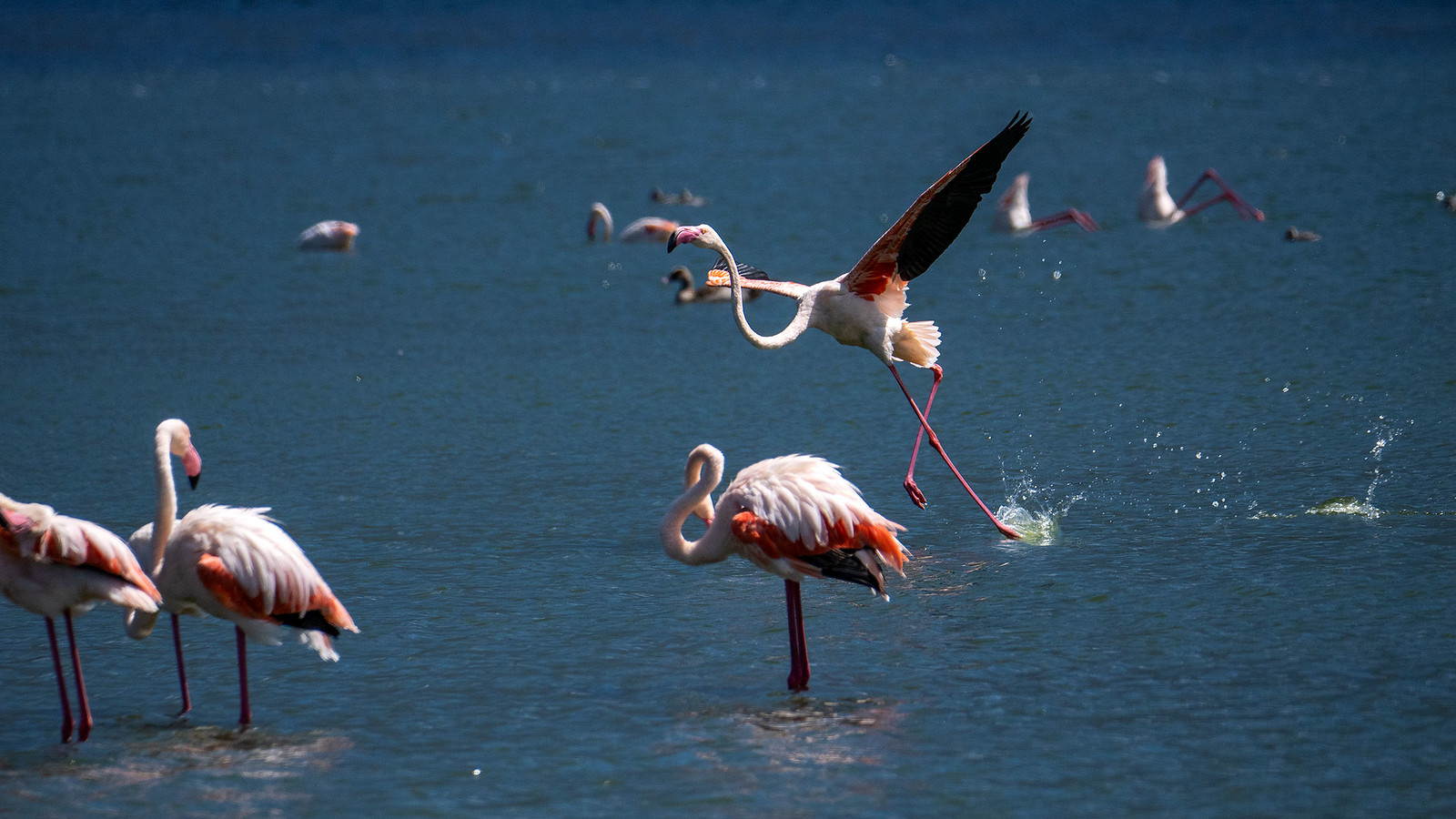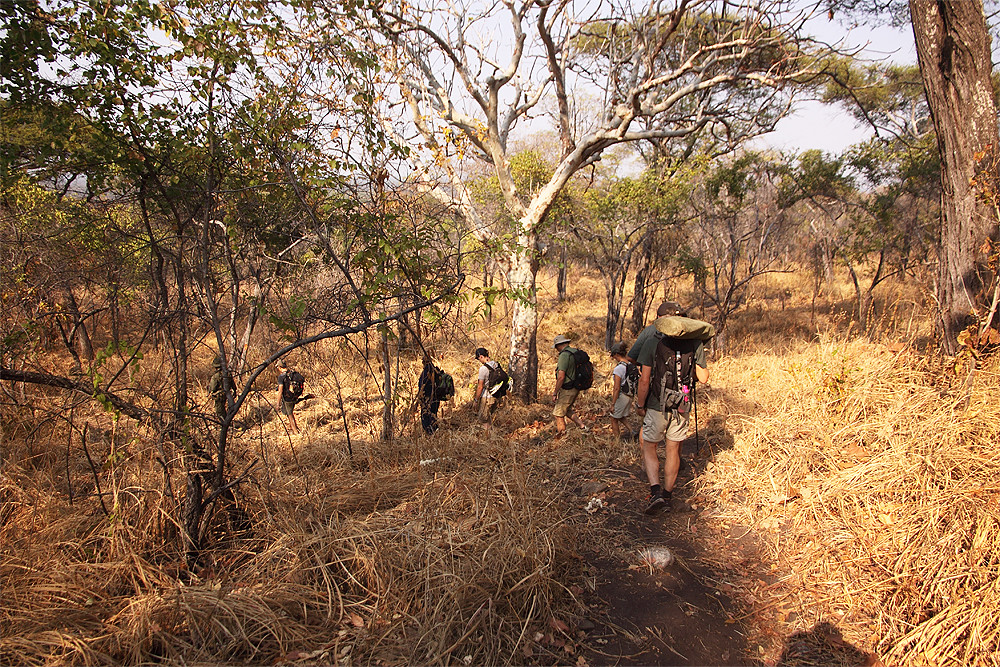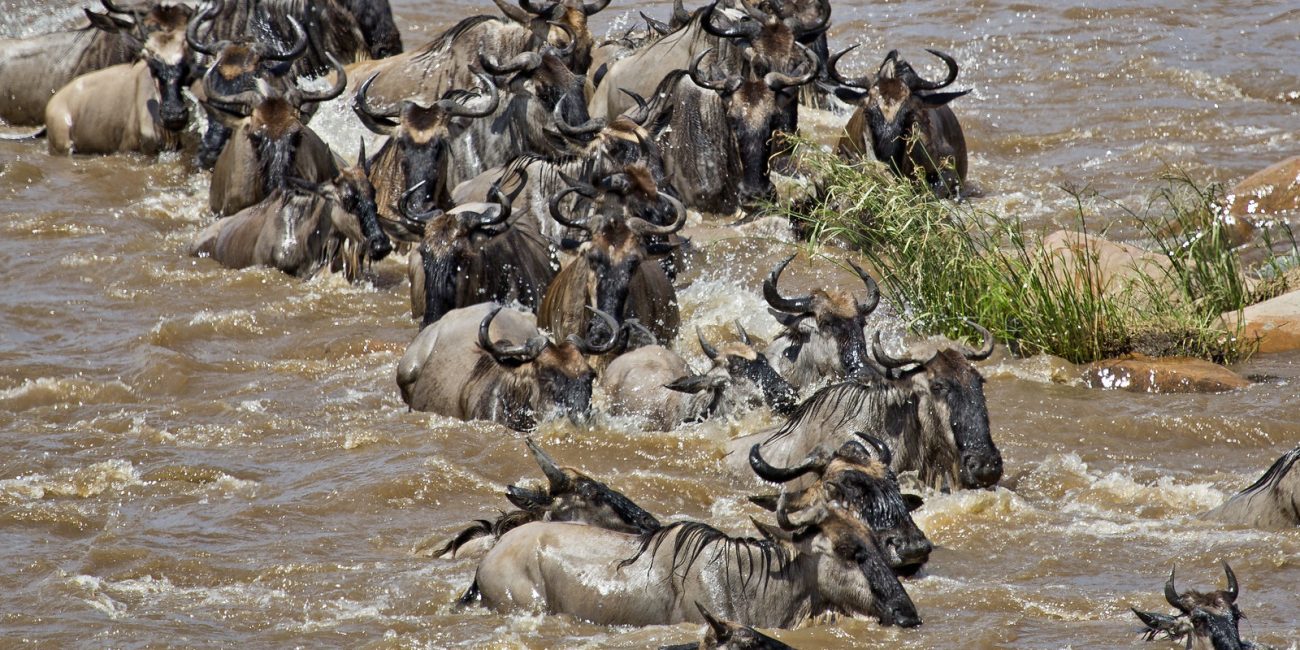
A Complete Guide for a Trip to Tanzania
Tanzania is an East African country, neighboring Uganda and Kenya . It’s varying landscapes, numerous wildlife, and rich culture, make it a top choice for African safaris and tours. Tanzania has something to offer everybody, from a wildlife enthusiast, a nature lover, or one simply looking for an exceptional travel experience.
Top Destinations in Tanzania
Here are some must-visit destinations to include in your Tanzania tour:
-
Serengeti National Park
This is the most famous wildlife destination in Tanzania due to the Great Migration and offers the world's best wildlife viewing opportunities as thousands of wildebeests and zebras travel long distances in search for pastures and water. - Ngorongoro Conservation Area The Ngorongoro Crater, often referred to as the Garden of Eden, and a UNESCO World Heritage Site is home to various species of wildlife, especially the Big Five.
- Tarangire National Park This National Park is known for its large elephant herds and diverse birdlife. It’s a good place for bird watching.
- Mount Kilimanjaro Trekking to the summit of Africa’s highest peaks is a challenge worth undertaking. Kilimanjaro has different routes to choose from, each with its own unique scenery as you hike through the rain forests and changing vegetaion around the mountain.
- Arusha National Park The park has the largest giraffe population in the world and also known for hikes to the peak of Mount Meru. Its home to many wildlife species.
-
Zanzibar and the Islands of Tanzania
Relax on the pristine beaches of Zanzibar, explore the historic Stone Town, and savor the island's blend of African, Arab, and Indian cultures. Don't forget to indulge in the local cuisine. - Selous Game Reserve As one of Africa's largest game reserves, Selous offers a more remote and secluded safari experience with boat safaris on the Rufiji River.
- Lake Manyara National Park Renowned for its tree-climbing lions, this park also offers excellent birdwatching and stunning lake views.
- Ruaha National Park A lesser-known gem, Ruaha boasts rugged landscapes and is famous for its large population of predators, including lions and leopards.
- Katavi National Park Go to Katavi for wild animals in a big, open space.
- Mikumi National Park See lots of animals like elephants and lions in Mikumi.
- Manzi Bay Visit Manzi Bay for pretty beaches and clear water. You can swim and see fish.
- Rubondo Island National Park Go to Rubondo Island in Lake Victoria to see monkeys and pretty forests.

- Mahale Mountains National Park For a different wildlife encounter, visit Mahale to see chimpanzees in their natural habitat. Join the trekking experience through thick rainforests on your way to the summit.
-
Usambara Mountains
Explore the charming villages, lush forests, and panoramic viewpoints of the Usambara Mountains on a trekking adventure. -
Pangani
A coastal town with historic architecture, beautiful beaches, and opportunities for diving and snorkeling. - Uwanda National Park Uwanda has cool rocks and wild dogs. You can explore the land.
- Saadani National Park Saadani is where the land meets the ocean. You can see elephants and enjoy the beach.
- Jozani Chwaka Bay National Park Visit Jozani Chwaka Bay to see special monkeys in the forests.
-
Kitulo National Park
Kitulo is a place where many flowers grow. It's colorful and pretty. - Gombe Stream National Park At Gombe Stream, you can watch chimpanzees near Lake Tanganyika. Jane Goodall studied them here.
- Udzungwa Mountains National Park Hike in the Udzungwa Mountains to see waterfalls and animals.
Our Popular Safari Packages
- 2 Days (Group Joining) Tour to Arusha NP & Tarangire
- 2 Days - Lake Manyara and Tarangire
- 3 Days - Lake Manyara, Ngorongoro Crater and Tarangire
- 3 Day Private Tanzania Safari in Mikumi National Park
- 3 Day Lake Manyara National Park Safari
- 4 Days (Group Joining) Tour to Tarangire, Manyara, Ngorongoro & Materuni falls
- 4 Days (Isebania to Arusha) - Serengeti and Ngorongoro Crater
- 4 Day Zanzibar Beach Resort Holiday Package
- 4 Day Holiday to Zanzibar - Beach, Stone Town & Spice
- 5 Days (Group Joining) Tour to Serengeti (2 nights), Ngorongoro & Tarangire
- 5 Day Zanzibar Holiday Package - Adventure Tour
- 6 Day Climb Mount Meru - Tanzania Hiking Tour
- 6 Day Zanzibar Honeymoon Package
- 7 Day Tanzania Luxury Safari Holiday
- 7 Day Wildlife Safari to Serengeti & Ngorongoro
- 7 days Tanzania's Migration, Karatu & Tarangire
- 8 Days Tanzania Safari and Zanzibar Beach Holiday
- 8 Day The Great Migration Safari - Mara River crossing
- 9 days Tanzania’s Tarangire, Ngorongoro & Serengeti North
- 9 Day drive and Fly back Wildlife Tour
- 10 days Tanzania Classic Northern Circuit
- 10 Day Kenya and Tanzania Vacation
- 11 days Tanzania's Highlands & Serengeti East
- 12 days Luxury Tanzania Safari and Migration

What to Do in Tanzania – Activities on a Safari to Tanzania
A Tanzania holiday offers a wide range of activities and adventures to suit various interests.
Here are some exciting things to do during your visit:
- Wildlife Safaris: Tanzania is renowned for its wildlife. Go on game drives in national parks like Serengeti and Ngorongoro to spot the Big Five (lion, elephant, buffalo, leopard, and rhinoceros) and other fascinating animals.
- Hot Air Balloon Safaris: Experience the Serengeti from a unique perspective by taking a hot air balloon ride. Watch the sunrise as you float above the savannah, witnessing wildlife from the air.
- Cultural Tours: Come experience the rich cultural heritage of Tanzania. Interact with locals and learn about their traditions on a village tour.
- Mountain Climbing: Go on the adventure of a lifetime by climbing Mount Kilimanjaro, Africa’s highest peak. Alternatively, hike Mount Meru or explore the Usambara Mountains.
- Birdwatching: Tanzania is a birdwatcher’s paradise, with over 1,100 bird species. Explore parks like Lake Manyara and Arusha National Park for incredible birding opportunities.
- Zanzibar Beaches: After your safari or trek, head to Zanzibar for relaxation on pristine beaches.
- Snorkeling and Diving: Tanzania offers world-class underwater experiences. Take part in coral reefs teeming with marine life.
- Historical and Cultural Sites: Explore Stone Town in Zanzibar, a UNESCO World Heritage site filled with historic architecture, bustling markets, and a blend of cultures.
- Chimpanzee Trekking: Visit Mahale Mountains National Park for a chance to trek with wild chimpanzees in their natural habitat.
- Hot Springs: Relax in the natural hot springs in areas like Lake Manyara and Chemka. It’s a soothing and rejuvenating experience.
- Canoeing and Boat Safaris: Explore Tanzania’s waterways on canoe trips or take a boat safari on the Rufiji River in Selous Game Reserve.
- Spice Tours: In Zanzibar, discover the island’s rich history of spice production by taking a spice tour to see and taste various spices and tropical fruits.
- Hiking and Nature Walks: Enjoy guided hikes and nature walks in various parks and reserves to appreciate Tanzania’s diverse flora and fauna up close.
- Camping: Experience the thrill of camping in the wilderness. Many parks offer camping facilities, providing a unique connection to nature.P
- Photography: Capture the stunning landscapes, wildlife, and cultural moments. There are endless opportunities for photographers.
- Relaxation and Wellness: Many lodges and resorts in Tanzania offer spa and wellness services, providing a perfect way to unwind after adventures.
- Local Cuisine: Savor the flavors of Tanzanian cuisine, including dishes like Ugali, Nyama Choma (grilled meat), and Swahili curries.


Travel Information
Tips for first time Travelers to Tanzania
Here are some travel tips for your Tanzania tour:
Choose the Right Safari
• There are various safari types, including game drives, walking safaris, and hot air balloon safaris. Pick the trip that suits your interests and comfort level.
Check Visa and Passport Requirements
• Ensure your passport is valid for at least six months beyond your intended departure date.
• Check visa requirements for Tanzania based on your nationality. Most travelers can obtain a tourist visa upon arrival, but it's essential to verify the latest information before your trip and carry both physical and digital copies of your passport and important documents.
Vaccinations and Health Precautions
• Consult your healthcare provider or a travel clinic well in advance for necessary vaccinations and health precautions.
• Consider taking malaria prophylaxis, especially if you'll be visiting malaria-prone areas.
• Carry a basic first-aid kit with essentials like antiseptics, bandages, and any prescribed medications.
Travel Insurance
• Get comprehensive travel insurance that covers medical emergencies, trip cancellations and luggage loss
Currency and Banking
• The currency in Tanzania is the Tanzanian Shilling (TZS). It's advisable to carry some US dollars in small denominations for emergencies and exchange them into TZS when needed.
• Credit cards are widely accepted in major cities, but it's a good idea to have some cash for smaller towns and markets.
• ATMs are available in urban areas, but their availability can be limited in rural locations.
Health Precautions
• Consult your doctor for necessary vaccinations and anti-malarial medication before traveling to Tanzania.
Language and Communication
• The official languages are Swahili and English. Learning a few basic Swahili phrases can be helpful and appreciated by locals.
• Purchase a local SIM card or an international roaming plan for your phone to stay connected.
Wildlife Etiquette
• During safaris, follow the guidance of your guide. Keep a safe distance from wildlife and avoid making loud noises that might disturb animals.
• Never feed wild animals, and do not litter in the national parks.
Packing Essentials
• Pack lightweight, neutral-colored clothing for safaris, along with comfortable, sturdy shoes suitable for walking and hiking.
• Sunscreen, a wide-brimmed hat, sunglasses, insect repellent, and a reusable water bottle are essential items.
• Binoculars and a good camera for wildlife and landscape photography can enhance your experience.
Respect Local Customs
• Tanzania is culturally diverse. Respect local customs, traditions, and dress codes, especially when visiting rural areas or religious sites.
• Always ask for permission before taking photos of people.
Safety and Security
• Tanzania is generally a safe country for tourists, but it's advisable to take standard safety precautions. Keep an eye on your belongings and use hotel safes when available.
• Stay informed about local conditions and heed any travel advisories.
Sustainable Tourism
• Choose tour operators and accommodations that practice sustainable and responsible tourism to minimize your environmental impact and support local communities.
Accommodation in Tanzania (Hotels and Safari Lodges)
When planning a safari, your choice of accommodation is a very important part of the adventure. Tanzania offers a diverse range of places to stay, ensuring that every traveler finds comfort amidst the wilderness. From luxurious lodges perched on the rim of the Ngorongoro Crater to tented camps nestled under the vast African sky in the Serengeti, accommodation options blend seamlessly with the natural surroundings. Wake up to the roars of lions, the trumpeting of elephants, or the rustling of leaves in the gentle breeze. In Zanzibar, historic Stone Town boasts charming boutique hotels with centuries-old architecture, while the island’s beachfront resorts offer paradise-like serenity.
Cost of a Tanzania Holiday
The cost of a Tanzania safari can vary depending on several factors, including the type of safari, the duration, the level of accommodation, and the time of year you choose to visit. Here’s a rough breakdown of the average costs for different types of safaris
- Budget Camping Safari: These safaris involve camping in basic tents and using shared facilities. Prices can range from $100 to $300 per person per day.
- Mid-Range Lodge Safari: Staying in mid-range lodges or tented camps with more comfortable amenities and services can cost between $300 to $600 per person per day.
- Luxury Safari: Luxury safaris offer high-end accommodations, private guides, and exclusive experiences. Prices for luxury safaris can range from $600 to $1,500 or more per person per day.
- Kilimanjaro Trek: Climbing Mount Kilimanjaro involves additional costs for permits, guides, porters, and equipment. Prices typically start at around $1,000 and can go up to $5,000 or more, depending on the route and level of service.
- Zanzibar Beach Extension: If you plan to visit Zanzibar as part of your Tanzania trip, budget an additional $100 to $500 or more per person per day for accommodation and activities.
Additionally, the time of year you visit can impact costs. Peak tourist seasons, such as the Great Migration season (June to September), tend to be more expensive than the low or shoulder seasons.
To get an accurate quote for your specific Tanzania safari, it’s advisable to contact reputable tour operators and discuss your preferences and budget with them. They will provide you with more detailed itineraries and pricing options tailored to your needs to choose from.
FAQ for a Tanzania Safari (Q&A)
Frequently asked question when planning a Tanzania Holiday.
A safari is like a special trip to see wild animals in Africa. You get to watch animals in their homes, not at a zoo.
Tanzania offers diverse attractions. Must-visit destinations include Serengeti National Park, Ngorongoro Conservation Area, Mount Kilimanjaro, Zanzibar Island, and Tarangire National Park.
You can see lions, elephants, giraffes, zebras, and more. Tanzania has amazing wildlife. Don’t miss the big five.
It’s the five most famous animals to see: lions, elephants, buffalo, leopards, and rhinos. They’re like safari celebrities.
The dry season from June to October is ideal for safaris and trekking. The wet season (November to May) is great for birdwatching, but some areas may be inaccessible due to heavy rains.
The dry season from June to October is ideal for safaris and trekking. The wet season (November to May) is great for birdwatching, but some areas may be inaccessible due to heavy rains.
Most travelers can obtain a tourist visa upon arrival at Tanzanian airports and border crossings. However, it’s advisable to check visa requirements based on your nationality before traveling.
Consult your healthcare provider for necessary vaccinations, including yellow fever and malaria prophylaxis. It’s essential to carry mosquito repellent and stay updated on health advisories.
Pack lightweight, neutral-colored clothing for safaris, sturdy walking shoes, sunblock, insect repellent, a wide-brimmed hat, and binoculars for wildlife viewing.
Don’t worry; you won’t. You’ll have an expert guide who knows the animals and land better.
It’s generally not recommended to drink tap water. Stick to bottled water, which is widely available.
Tanzanians are generally friendly and respectful. It’s advisable to dress modestly, especially in rural areas. Ask for permission before taking photos of people, and respect local customs and traditions.
Apart from safaris, consider hiking Mount Kilimanjaro, exploring Zanzibar’s beaches, snorkeling, diving, and visiting local villages for cultural experiences.
The Tanzanian Shilling (TZS) is the currency. You can exchange money at banks, exchange bureaus, or withdraw from ATMs. Credit cards are widely accepted in urban areas.
Yes, it’s highly recommended to book a reputable local guide or tour operator, especially for safaris and mountain treks. They provide expertise, ensure safety, and enhance your experience.
The Great Migration is the annual movement of millions of wildebeests and zebras in search of fresh grazing. The best time to witness it in Tanzania is generally from June to September in the northern Serengeti.
No, don’t touch the animals. They’re wild, and it’s not safe for you or them.
Travel guidelines related to COVID-19 can change, so it’s crucial to check the latest requirements, including testing and quarantine regulations, before your trip.
You can buy souvenirs, but don’t take anything from nature, like plants or rocks. You can take photos instead!


